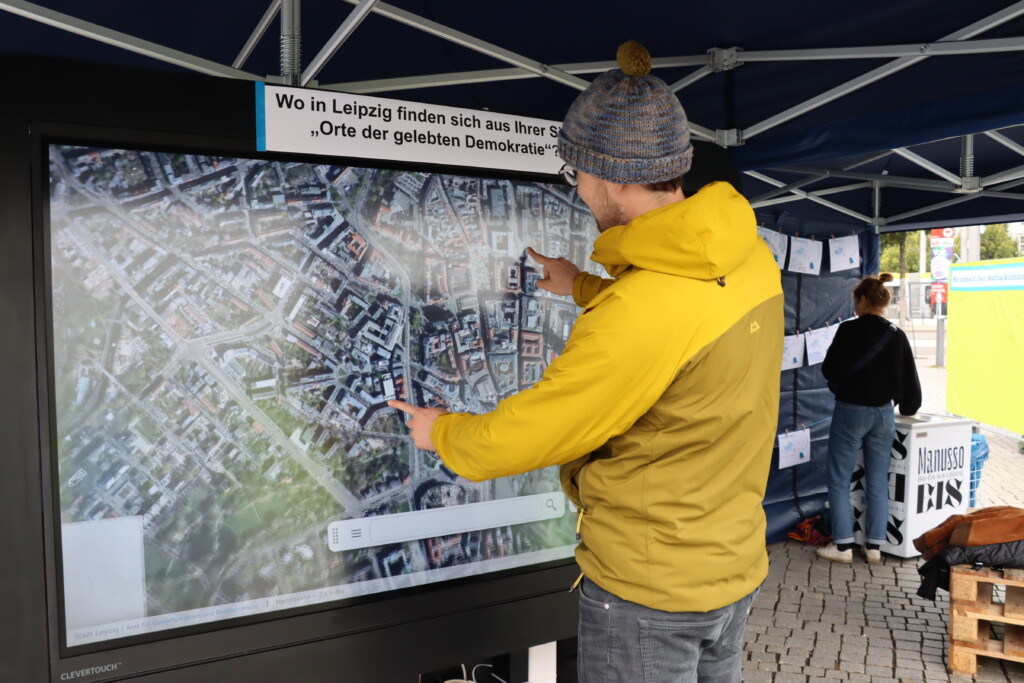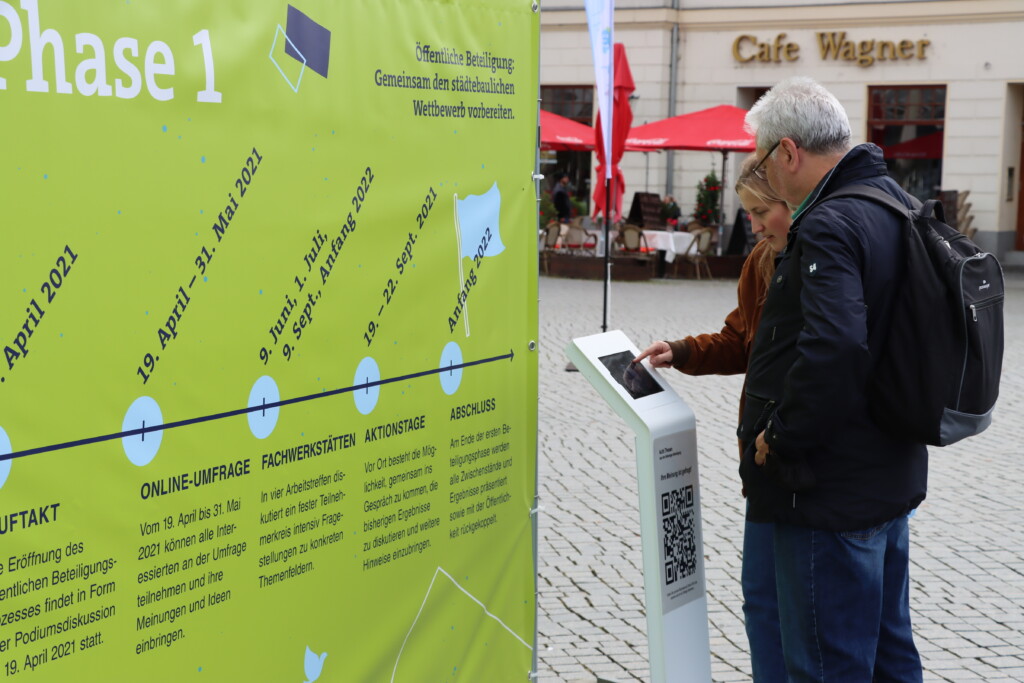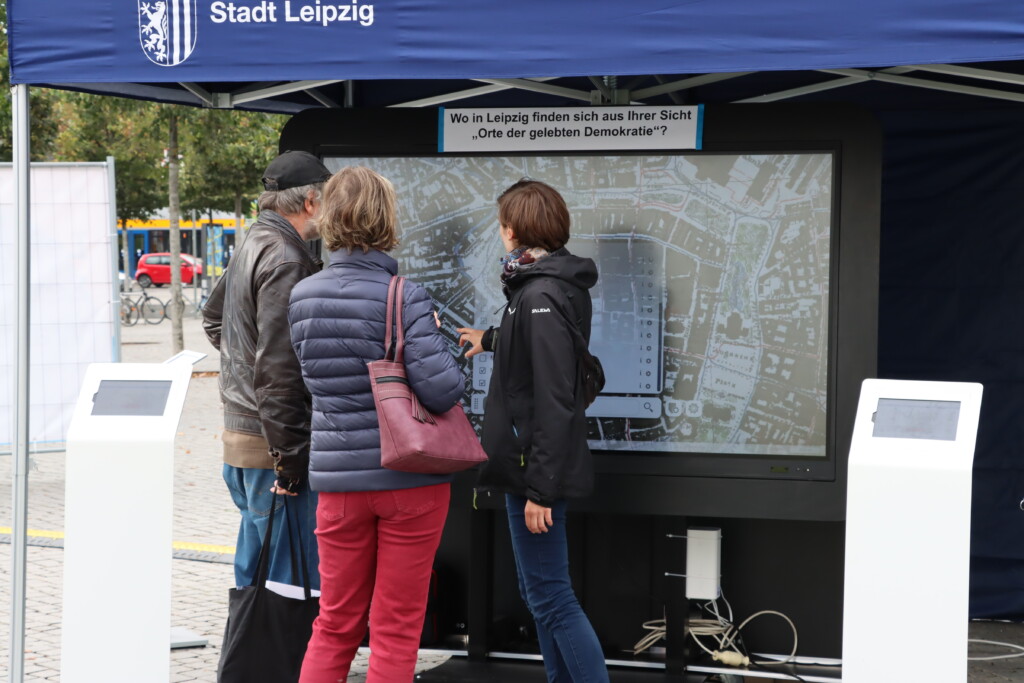Our vision is for citizens to get to know Urban Digital Twins, and for them to use applications developed specifically for the wider urban community. Accessing the new digital urban infrastructure that will be developed should be easy and intuitive. Using these applications should be fun for the users and provide them with personal added value. In addition, the applications in question should serve citizens and urban planners alike, in order to make it easier to understand their city and its workings, and to work together to improve the city. The applications should also be available to other cities in the form of concepts within the framework of replication.
In Hamburg, a Digital Participation System (DIPAS) was developed prior to the launch of the CUT project, and it has been available for use by other cities as open source software since 2021. In the wake of the CUT project, this system and all its technical, structural and practical components will be transferred to Leipzig and Munich. In addition to the software itself, the experience gained during this transfer is to be made available to other cities on a conceptual basis.
The first participatory procedures are currently being carried out in the cities of Munich and Leipzig with the aid of DIPAS. The experience gained by the two cities can in turn be used to contribute to the further development of the application together with Hamburg. The transparent representation of urban geodata and processes as a basis for citizen participation and for dialogue with the urban community about urban development creates trust and increases the understanding of complex urban interrelationships and causal chains. Citizens can obtain comprehensive information independently or under guidance, and then contribute their own concerns and ideas on specific topics. In this way, citizens and planners can become partners in their effort to shape the city together.
Along with the introduction of new digital methods and formats, there is also enormous demand for knowledge acquisition and transfer. The digital applications cannot perform the work as stand-alone solutions. To allow them to unfold their full potential, the CUT project begins by building up competences and acquiring knowledge, which is then processed and passed on to the relevant bodies within the partner cities and beyond.
DIPAS transfer to Leipzig: Participatory process for the development of the Matthäikirchhof (St. Matthews churchyard)
Objectives of the sub-project
- Digital participation
Complementing analogue participation formats with digital formats and methods and thus increasing the range of target groups reached - Digital Participation System (DIPAS)
Implementing, testing, evaluating and further developing DIPAS in two new test environments (Leipzig and Munich)
Working with Hamburg in an active production environment, deciding on an expansion stage (system or components) and deploying it in all three environments - Competence building
Accompanying and enabling the provision and use of (new) digital tools through appropriate capacity building, producing documentation and guidelines to assist other municipalities boost their own competence - Co-Creation
Exploring new co-creative forms of collaboration that emerge as a result of digitalisation and the deployment of Urban Digital Twins



